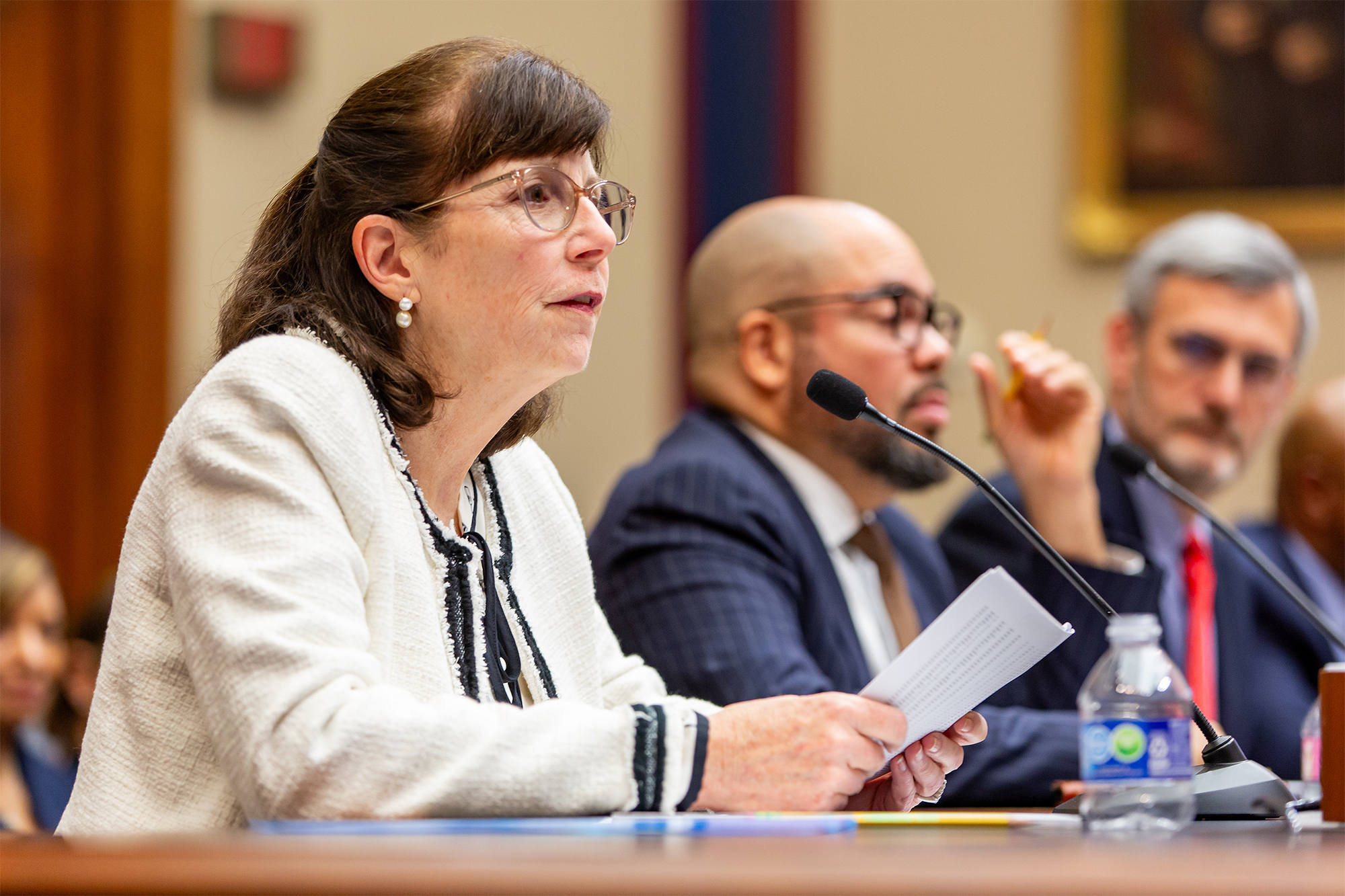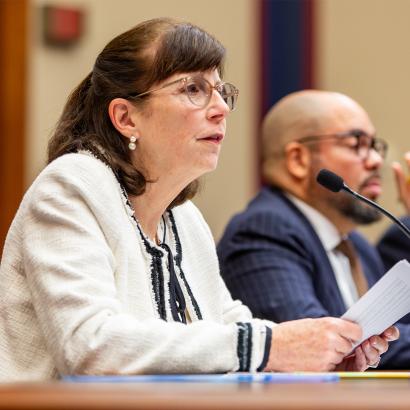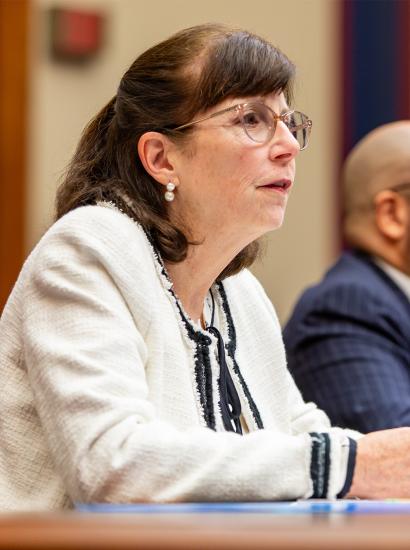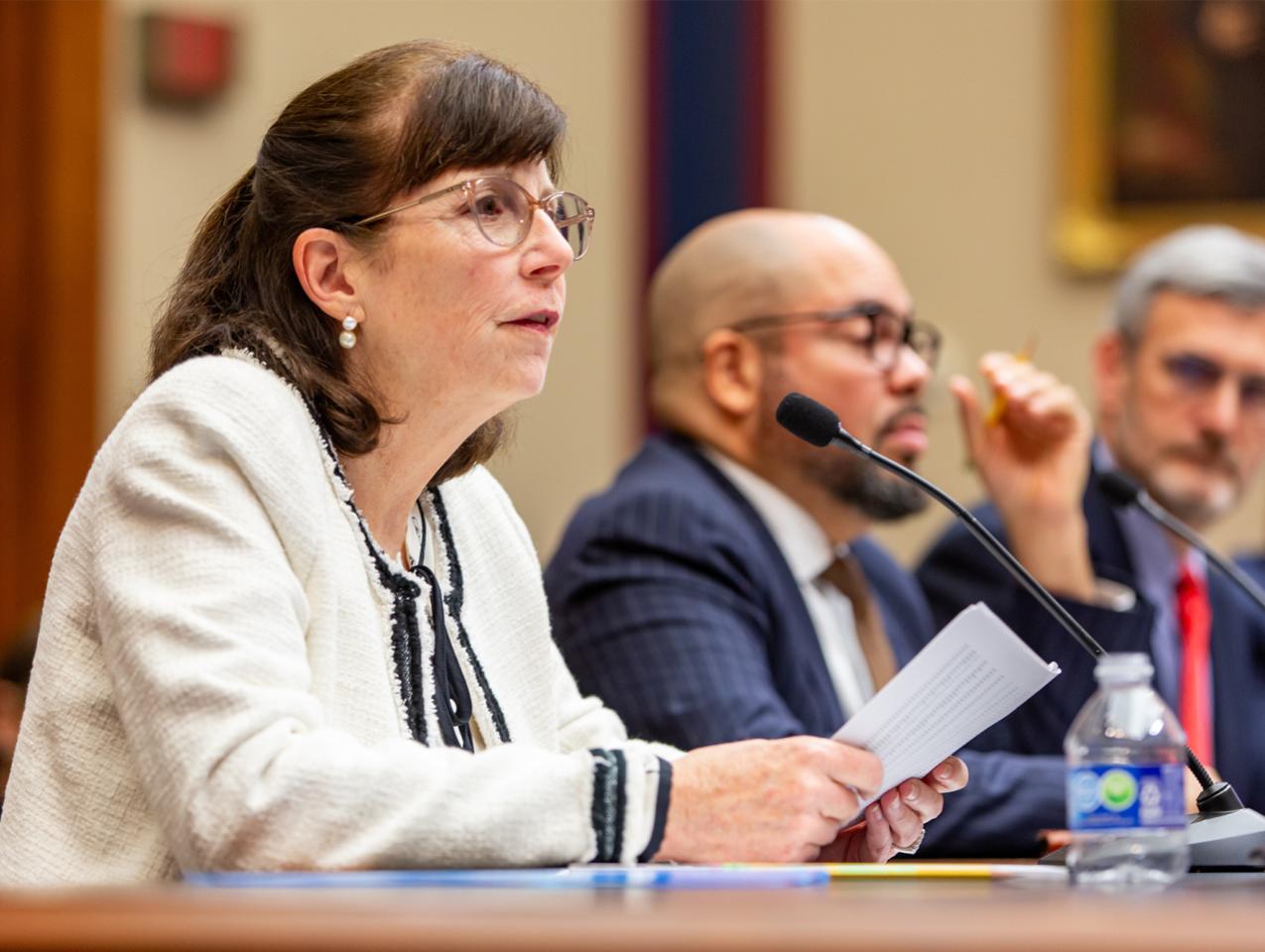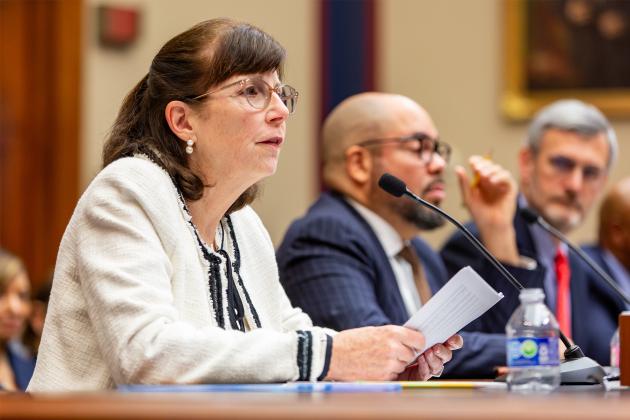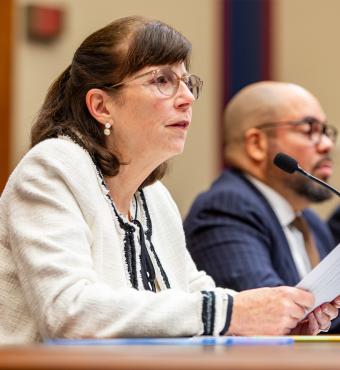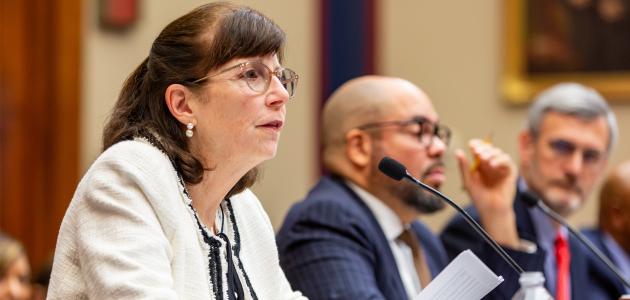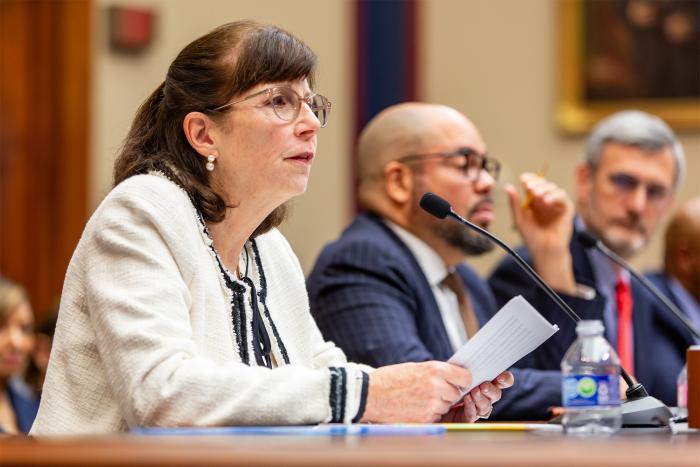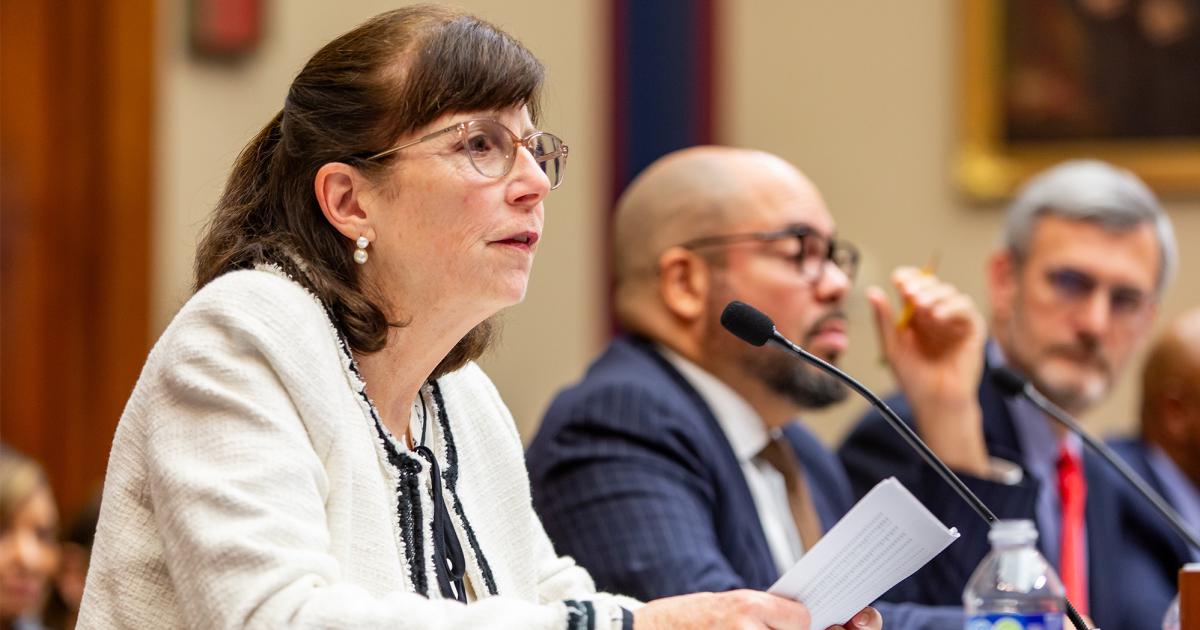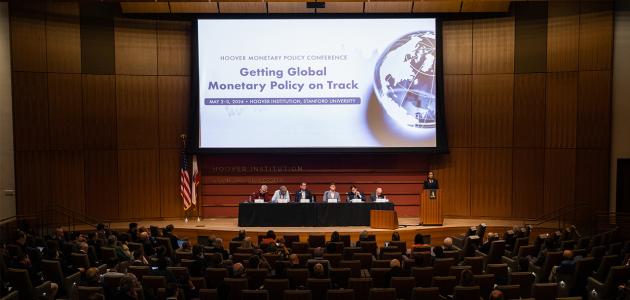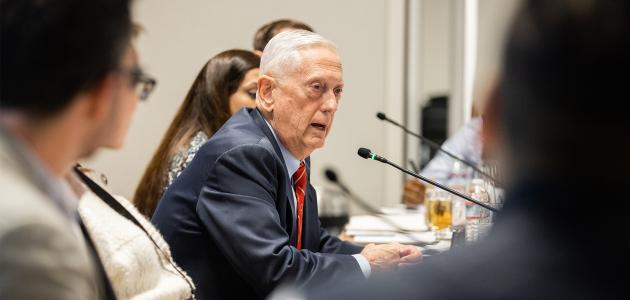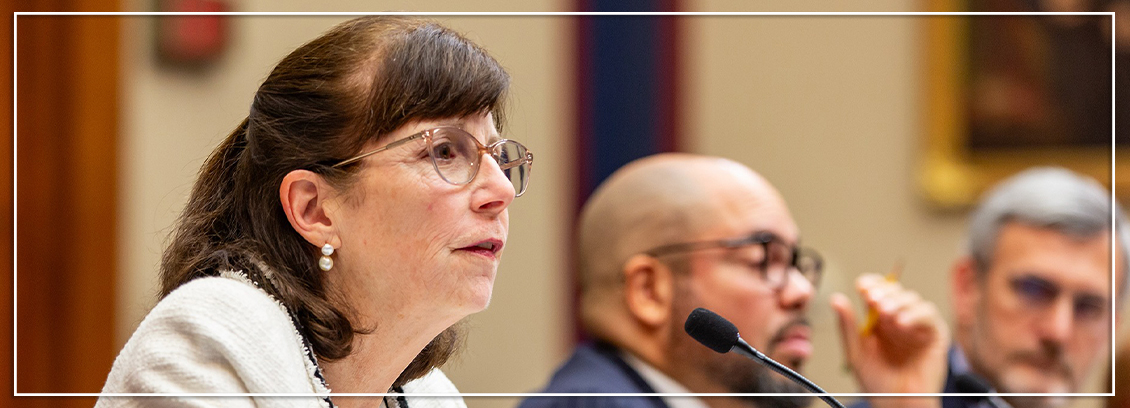
This briefing on K-12 education shares Margaret (Macke) Raymond’s testimony before Congress about her latest study on learning gains at charter schools. Eric Hanushek charts the total learning loss sustained by US pupils since 2020. And Chester E. Finn, Jr., argues for a return to results-based accountability in K–12 education.
FEATURED ANALYSIS

Margaret E. Raymond Presents Findings on Charter School Gains to Congress
Hoover Institution distinguished research fellow Margaret (Macke) Raymond testified before the US House Committee on Education and the Workforce’s Subcommittee on Early Childhood, Elementary, and Secondary Education on March 6, 2024.
She brought forth her decades-long work researching the educational outcomes of charter schools, work she undertakes as founder and director of the Center for Research on Education Outcomes (CREDO) at Stanford University.
Raymond told legislators of the latest analysis by CREDO, completed in 2023, issued as the National Charter School Study III. The study showed that on average, charter school students receive sixteen more days of learning in reading and six additional days in math than their peers attending public schools in their respective jurisdictions. This latest finding builds on two previous analyses, completed in 2009 and 2013, showing steady gains in instructional time available to the average charter school student when compared to their public-school peers.
CREDO found the gains were even more pronounced for students living in urban areas, Black students, Hispanic students, and students in low-income communities. But it also found that charter schools in rural areas continue to lag behind their urban counterparts. Special-needs students in charter schools also do not appear to be receiving the same quality of education as their public-school peers.
Raymond emphasized the value of charter school operations in support of narrowing achievement gaps between pupils of color and their White counterparts.

Eric Hanushek Charts Cost of Pandemic-Era Learning Loss on US Pupils
In a paper published for the Hoover Education Success Initiative (HESI), Eric Hanushek and Bradley Strauss analyze standardized math test scores from teens in eighty-one countries. They note that between 2018 and 2022, US results fell in comparison with those of foreign peers, but there was a vast discrepancy between the best- and worst-performing US states. The authors point out that student achievement declined in most of the world because of school closures related to the COVID-19 pandemic but that the United States has been slow to rebound. They estimate the US could lose up to $31 trillion in aggregate GDP growth through the rest of the twenty-first century if this learning loss is not addressed soon.
Compared to peer countries, the United States ranked just below the OECD (Organisation for Economic Co-operation and Development) average for math scores in 2022, with Malta just ahead and Slovakia just behind. In the 2022 ranking, Taiwan, Japan, Singapore, and South Korea all showed gains from 2018 test scores. Hanushek and Strauss say this data suggests that strong family dynamics in those countries helped offset any potential losses from school closures and the pandemic.

The Accountability Challenge: Documenting the Rise and Fall of Results-Based Accountability in Schools, via National Affairs
In an essay for National Affairs, Chester E. Finn, Jr., documents the rise and fall of results-based accountability measures in public schools, from research published during the Johnson administration to that of the No Child Left Behind era and beyond. Today, with pronounced learning loss related to the COVID-19 pandemic showing up in elementary and secondary school testing, Finn says results-based school accountability is more important than ever. He writes how test-based accountability is now under attack in many states, with one California state senator characterizing it as “punitive high-stakes testing.”
“We need a rebirth of accountability in American K–12 education, while also still taking ‘capacity’ seriously,” he writes. “Skills are necessary to that end, for sure. But when the will isn’t there, consequences must follow.”
HIGHLIGHTS

A Nation at Risk +40 Contributors Write in The 74
Since the publication of a A Nation at Risk +40, Hoover fellows and education scholars have been adapting their respective chapters from the volume for wider dissemination on The 74, a news source dedicated to education policy issues. Recent entries by A Nation at Risk +40 contributors include Eric Hanushek on efficient and effective school funding formulas, Mike Petrilli on how standards-based school reforms have succeeded and failed, and Cami Anderson on her experience taking over the Newark Central School District in 2015.
Click here to watch the program.

Defining Ideas Hosts Q&As with A Nation at Risk +40 Contributors
A Nation at Risk +40 authors are also speaking about their findings in interviews published in Defining Ideas, the Hoover Institution’s flagship online publication. Recent entries include a discussion with Hoover Fellow Michael T. Hartney about his ideas for “student-centered systems” and reforms to school district election procedures that he argues would make school trustees more accountable and effective.
Fellow Spotlight: Margaret (Macke) Raymond

Margaret (Macke) Raymond is a distinguished research fellow at the Hoover Institution and director of Stanford’s Center for Research on Education Outcomes (CREDO), which she also founded in 1999. The CREDO team conducts rigorous and independent analysis and evaluation of promising programs that aim to improve outcomes for students in US K–12 public schools. Raymond’s deep belief in building capacity for improved analysis of programs and policy has found its place through service on advisory boards, technical resource groups, and peer-review panels. She is a regular source for local and national media. Raymond was selected as a Pahara-Aspen Education Fellow in recognition of her leadership in US education policy.







